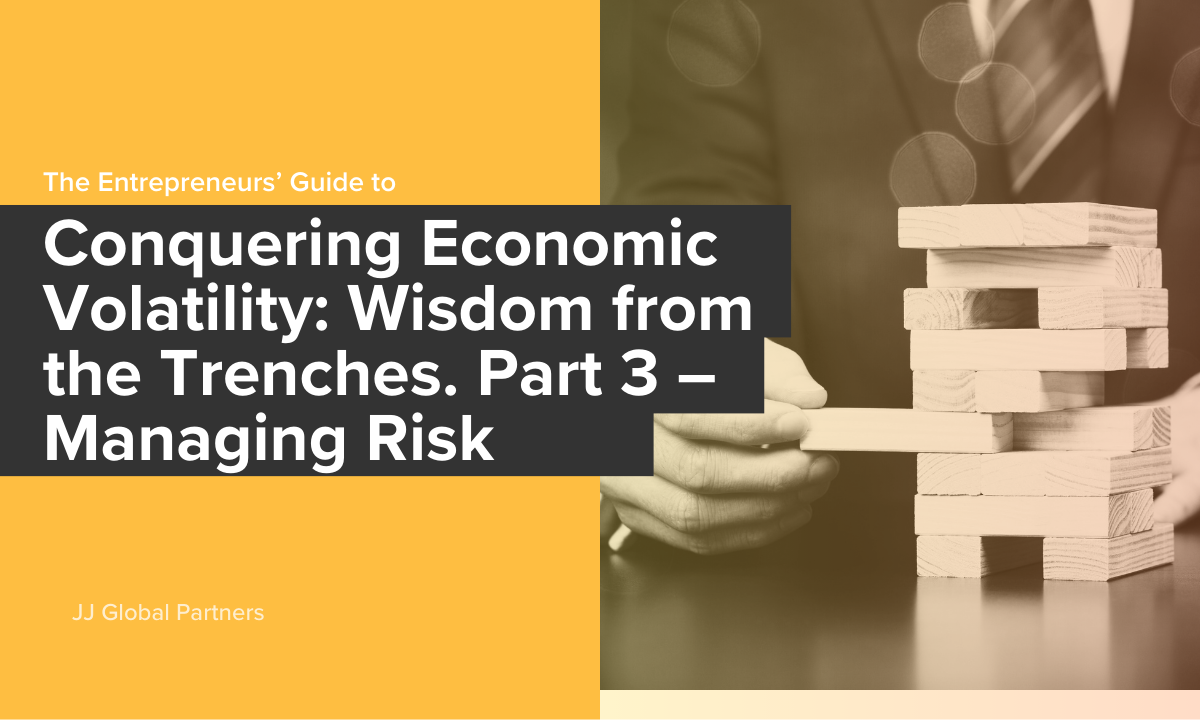For those who straddle the fine line between risk and reward it can feel like sailing in unpredictable waters. Our approach to Managing Risk mirrors Warren’s belief in clearer skies ahead, no matter the storm.
At heart, the principle is simple—never risk what you can’t afford to lose. It’s like ensuring the ship’s hull is robust enough to withstand any tempest the sea throws its way.
This goes beyond mere asset allocation approaches.
Berkshire has largely steered clear of the siren call of leveraged bets, firmly anchoring in the belief that fiscal conservatism isn’t merely a strategy; it’s a pledge to their shareholders.
Think of it as building a fortress around your assets, with readiness for financial downturns and crises as the moat that keeps adversities at bay. Warren and Charlie say that they are tasked not just with the growth of wealth but with its preservation.
In this next section, we’ll explore the importance of never risking permanent loss of capital, the corporate responsibility in preparing for economic squalls, and why fiscal conservatism serves as a beacon of trust for shareholders and stakeholders.
We hope to demystify some of the complexities of managing risk with the few simple principles that, in the end, unite capital preservation with profitable growth.
Never Risk Permanent Loss of Capital
In the tapestry of financial endeavors, Charlie and Warren liken risking permanent loss of capital to skipping across a chasm in two leaps – a proposition as foolhardy as it sounds.
Consider ourselves as captains of a vessel where it’s not about if a storm will hit, but being prepared when it inevitably does.
Speculative gambles and undue leverage expose investors to the cold realities of financial downturns, laying bare those ill-prepared for adversity.
Implement a Margin of Safety
Senior executives ought to allocate resources solely towards assets or ventures with perceived value that far surpasses the cost.
This cushion, also known as a margin of safety, shields against misjudgments, unforeseen market shifts, or external economic challenges, thereby reducing the likelihood of enduring capital setbacks.
Charlie and Warren have always avoided the siren calls of speculative investments and leveraged positions, believing that the sweet melody of potential high returns often leads to the shipwreck of principal capital.
“Venturing beyond one’s depth without a life preserver, in hope of treasure, often leaves one drowning in losses.”
— Warren Buffett
So, we are reminded that the lure of quick gains should never compromise the security of the capital we steward.
Warren and Charlie’s careers are testament to the virtue of patience and the discipline of purchasing assets at a price that is not only reasonable but provides a margin of safety.
‘It’s akin to buying a sturdy umbrella in anticipation of a rainy day.’ — Warren Buffet
It is their conservatism, and unwillingness to compromise on the integrity of an investment, that has guided their decision-making through both bull and bear markets.
Conduct Thorough Due Diligence
Before diving into investments or exploring new markets, make sure you’ve done your homework.
Conduct thorough research and due diligence to grasp the full spectrum of risks and rewards.
Analyze the financial well-being, competitive edge, and growth potential of your investment options.
Heavily consider macroeconomic and sector-specific risks to make informed decisions.
Perpetuating this prudent approach, they encourage investors to eschew the arcane for the ascertainable, adopting strategies that prioritize the preservation of capital over the pursuit of ephemeral profits.
To Charlie and Warren, this philosophy is not merely a method of investing, but a maxim for financial life, ensuring that ventures into the market are marked not by hubris, but by humility and a steadfast commitment to safeguarding one’s financial future.
Diversify Investments and Revenue Streams
Avoid focusing too heavily on one investment, market, or revenue stream.
Diversifying capital across different sectors, assets, and geographies helps minimize vulnerability to industry downturns or asset devaluations, safeguarding against permanent loss.
Be Prepared for Financial Downturns
In navigating the unpredictable seas of the economy, Charlie and Warren remind us that storms are not just possibilities; they are certainties waiting on the horizon.
Consider ourselves as captains of a vessel where it’s not about if a storm will hit, but being prepared when it inevitably does.
The duo believes that preparing for financial downturns and economic crises isn’t just prudent.
It’s a fundamental responsibility of any corporate entity.
‘It’s akin to battening down the hatches before setting sail.’
Maintain Strong Liquidity Reserves
Ensure the business maintains a robust cash reserve or readily convertible securities to navigate financial challenges without distress-selling assets at a loss or resorting to costly borrowing.
Buffett and Munger often recount the tale of a sailor who, entranced by smooth seas, neglected to prepare for the storm.
“Such is the folly of companies caught in economic turmoil unprepared.”
— Warren Buffet
Charlie and Warren advocate for a conservative fiscal strategy, likening it to wearing a life jacket at all times.
Stress Test Your Financial and Operational Models
Frequently conduct stress tests on your business’ financial and operational models across different challenging scenarios.
This aids in pinpointing vulnerabilities and empowers the company to craft preemptive strategies against these risks.
Their candid disclosure of navigating Berkshire Hathaway through past recessions sheds light on their philosophy.
“Seeing the company as a fortress, we fortify the walls not during the siege but long before.” — Charlie Munger
Make an unwavering commitment to your business stewardship in the face of economic adversity, as well as in good times.
That’s the essence of financial preparedness.
Cultivate Flexibility in Your Operations and Financing
To swiftly respond to economic shifts, cultivate operational flexibility and financial adaptability.
This entails versatile production methods, adjustable supply agreements, and diverse credit options.
Pledge of Fiscal Conservatism
The great spectacles of gains and losses often play out with a dramatic intensity.
Yet, Charlie and Warren hold a conviction that fiscal conservatism is not just a strategy, but a solemn pledge to shareholders.
Think of it as promising to walk before you run. It’s about ensuring that every step we take is measured, minimizing the risk of a painful fall.
— Warren Buffett
In their eyes, this approach is analogous to packing a parachute before skydiving; it’s essential for a safe landing.
Charlie and Warren often say that with investing, ‘slow and steady wins the race.’
They liken the pursuit of quick profits through speculative investments to trying to sprint in a marathon.
‘It might give you a lead initially,’ Warren chuckles, ‘but you’re more likely to run out of breath long before the finish line.’
Patience, diligence, and a keen eye for value, are principles that have been the bedrock of their success.
Prioritize Long-Term Value Over Short-Term Gains
When making decisions, prioritize long-term value creation over chasing short-term profits or fleeting market trends.
This means focusing on investments in research and development, employee training, and infrastructure that yield lasting returns, rather than opting for quick fixes to inflate immediate financial gains.
‘The beauty of fiscal conservatism,’ Charlie muses, ‘is in its simplicity.
It’s like planting an oak tree. You might not live to see it at its grandest, but you’ve laid the foundation for something that can withstand the test of time.
— Charlie Munger
The call is to develop a belief in investing with an eye towards long-term growth and stability, rather than the fleeting allure of short-term gains.
Through the decades, their approach has not only safeguarded Berkshire Hathaway’s capital but also nurtured its growth, cementing it as an emblem of reliability and trust.
“We’re not in the business of building castles in the air. Our commitment is to build on solid ground, ensuring that the trust our shareholders place in us today will yield a bountiful harvest tomorrow.”
— Warren Buffett
Transparently Communicate Financial Strategies
Keep the lines of communication wide open with shareholders regarding your business’ financial strategies, risks, and challenges.
A high level of transparency not only fosters trust but also showcases a dedication to stewardship and fiscal accountability.
Warren and Charlie’s candid discussions about the pitfalls of greed and the virtue of restraint serve as a constant reminder of their pledge to shareholders.
“It’s about being guardians of value in ensuring that the treasure trove we’re entrusted with today will be even more valuable in the years to come.”
— Charlie Munger
To Charlie and Warren fiscal conservatism is not just a financial strategy, but a guiding principle that ensures the prosperity and security of their shareholders for generations.
Employ a Conservative Approach to Debt
Leverage can supercharge returns, yet too much debt heightens risk, especially in market slumps.
Prudently handle debt, prioritizing a robust balance sheet and credit score.
Sometimes, passing on ventures needing hefty debt is wise, especially in volatile economic climates.
PEARLS
Preparedness is key to navigating financial downturns and economic crises; it’s not a question of if, but when.
Corporate responsibility entails being ready for economic storms, akin to battening down the hatches before setting sail.
Conservative fiscal strategy likened to wearing a life jacket, ensures liquidity and minimizes leverage to avoid drowning in debt.
Preparation and foresight are crucial; fortifying a company’s financial health should happen long before economic adversity strikes.
Risk management is about more than survival; it’s about emerging resilient and ready for future growth.
GOOD READS
Antifragile: Things That Gain from Disorder by Nassim Nicholas Taleb: Taleb’s book introduces the concept of “antifragility,” the ability of systems to benefit and grow stronger from volatility, stress, and disorder. This aligns with the advice on being prepared for economic downturns and crises, highlighting the importance of building businesses and investment strategies that not only withstand shocks but also thrive because of them.
The Black Swan: The Impact of the Highly Improbable also by Nassim Nicholas Taleb: Focusing on the impact of rare and unpredictable events (“Black Swans”) and human beings’ tendency to find simplistic explanations for these events retrospectively, this book complements the pearls by underscoring the importance of preparedness for unforeseen crises. Taleb argues for robustness against negative events.

